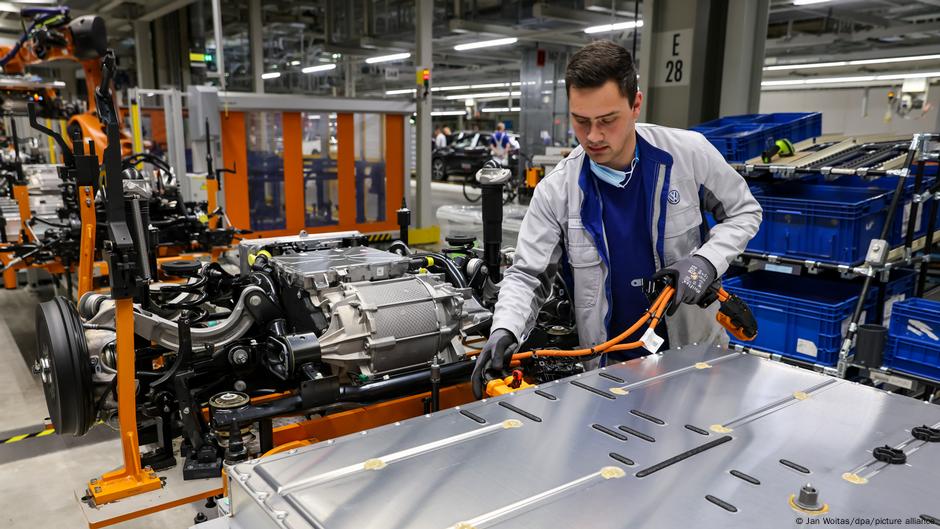
European Automakers Push for Emission Standard Revisions Amidst Industry Challenges
Leading figures from Europe's automotive industry recently converged in Brussels to advocate for a softening of impending emission standards for new vehicles. Their appeal comes amid growing concerns that stringent regulations could undermine the competitiveness of the European auto sector.
The European Commission President, Ursula von der Leyen, addressed the summit of automotive executives, acknowledging the current headwinds facing the industry. She indicated that the EU would expedite its planned review of the 2035 ban on internal combustion engine (ICE) vehicles. This review is particularly timely given the multifaceted challenges confronting European automakers.
The 2035 Ban: A Source of Contention
The decision in 2022 to effectively prohibit the registration of new ICE vehicles within the EU from 2035 onward was a landmark moment, intended to accelerate the reduction of carbon emissions. However, European automakers are now urging a reassessment of these regulations, specifically requesting a relaxation of emission requirements for new models.
The core of their argument revolves around the feasibility of transitioning entirely to electric vehicles (EVs) within the proposed timeframe, considering the existing technological and economic limitations.
Technological Neutrality and Alternative Solutions
In response to the carmakers' plea for flexibility, including the possibility of incorporating low-emission technologies and hybrid vehicles beyond 2035, President von der Leyen emphasized a commitment to "decarbonization and technological neutrality." This statement suggests a willingness to explore alternative pathways to emissions reduction, potentially opening the door for solutions beyond a complete EV mandate.
Obstacles Facing the European Automotive Industry
Several critical challenges are hindering the smooth transition to EVs for European manufacturers. These include:
- Battery Dependence: A significant reliance on Asian suppliers for battery technology creates vulnerabilities in the supply chain and increases production costs.
- Infrastructure Deficiencies: The lack of a comprehensive and readily accessible charging infrastructure across Europe remains a major obstacle to widespread EV adoption.
- High Manufacturing Costs: Elevated production expenses associated with EVs make it difficult for European automakers to compete with rivals, particularly those from China.
- International Trade Barriers: Tariffs imposed by countries like the United States on imported vehicles further complicate the economic landscape for European manufacturers.
- Competition from China: The influx of affordable Chinese EVs presents a formidable competitive challenge to European automakers, putting pressure on market share and profitability.
Industry Leaders Voice Concerns
Ola Kaellenius, the CEO of Mercedes-Benz, articulated the industry's frustration in a joint letter representing the European automotive sector. He stated that the industry is being asked to undertake a massive transformation "with our hands tied behind our backs," arguing that the 2035 target is "no longer feasible" given the current circumstances.
Matthias Zink, a representative from automotive parts supplier Schaeffler, echoed these concerns, emphasizing the need for the EU to actively stimulate the EV market through consumer incentives such as tax breaks and subsidies.
Calls for Strategic Action
The German Association of the Automotive Industry (VDA) has been particularly vocal in its criticism of the European Commission's approach, arguing that it is "still acting too indecisively and not strategically enough" regarding the phasing out of ICE vehicles.
VDA President Hildegard Muller asserted that "rigid CO2 regulation jeopardizes competitiveness and thus the transformation of the entire industry." She called for immediate action from the EU, stating that "the solutions and options are all on the table" and that "further hesitation and procrastination cannot be tolerated."
Environmental Concerns and Counterarguments
Despite the automotive industry's push for leniency, environmental groups and representatives from the EV sector have urged President von der Leyen to "stand firm" on the 2035 phase-out. They argue that maintaining the stringent target will stimulate innovation and attract crucial investments in electric vehicle technology and infrastructure.
This perspective highlights the ongoing debate surrounding the most effective path to achieving climate goals while ensuring the economic viability of the European automotive industry. The tension between environmental ambitions and industrial realities will likely shape the future of transportation in Europe for years to come.


No comments:
Post a Comment